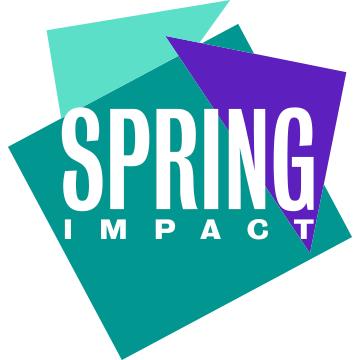Impact at scale
The San Francisco-based Mulago Foundation recently brought Puppala together with other conservation fellows for a weeklong intensive on “design for maximum impact and scalability,” but Puppala said the foundation does not take the same hand-holding role that Spring Impact does with its clients.
Scale usually involves replicating via others, but most organizations don’t put enough thought into how to do that, Kevin Starr, director of the Mulago Foundation, told Devex in an interview on achieving impact at scale. That is part of why the foundation decided in its last board meeting that it would give an extra $100,000 to organizations that were serious about replicating via others. Starr said he and the Spring Impact team have spoken about their shared view that aspiring social entrepreneurs and big NGOs alike should think harder about replicating versus innovating.
Last year, Santa Clara University’s Miller Center for Social Entrepreneurship launched its Replication Initiative, in partnership with groups including Spring Impact and Connovo, a Mexico City-based organization that similarly works with social ventures to scale their impact. The initiative is developing a methodology that will help social entrepreneurs understand their readiness for replication, in just one example of how the social sector is catching on to the message Berelowitz and his team have been delivering for six years. But challenges remain, including the growing number of young people who aspire to social entrepreneurship.
Instead, “what if kids said, ‘I’m dying to become the licensee of Living Goods Senegal?’” Coussa said, referring to the last mile distribution organization that has worked with NGO partners to replicate their model in new markets.
Kathryn Vizas, board chair at Spring Impact, told Devex she wants to see the organization do a better job of reaching donors, who could add into their requests for proposals something that addresses scale, or pay for these kinds of services directly. She got involved with the organization after she worked with Berelowitz and his team to capture lessons on scale from her work on cervical cancer screenings in India, as part of Population Services International’s Maverick Collective. Vizas said she gets tired of people asking her whether she plans to start her own nonprofit, explaining that the issue is not a lack of nonprofits, but a lack of resources to help the organizations that already exist do their work more effectively.
Get development’s most important headlines in your inbox every day.
At Spring Impact’s rebrand launch event at Google’s offices in San Francisco, Vizas, Berelowitz, and Coussa all talked with supporters about a shift in the Spring Impact mission to support 20 social innovations to scale their impact by 2024.
“Until we’ve brought organizations to this massive scale we’re talking about, we can be credible, but we’re not going to quite be what we want to be,” Vizas told Devex on Monday following Spring Impact board meetings. “One of the things I’ve always pushed, and it’s going to be part of our strategic plan, is we can’t do this all ourselves. We need to be thought leaders in this space.”
As ICSF becomes Spring Impact, it must shift from a startup mode, where the goal was to get a lot of clients, to tackling the structural obstacles that prevent organizations from scaling successful, including by developing partnerships with funders to help them fund for scale, Vizas said.
“What ICSF helps point out is that scaling impact sometimes means giving information away, training others, and finding other means of incentivizing others, be that government, traditional businesses, or other social impact organizations, to scale the work for you,” said Daniela Papi-Thornton, whose work on social impact education has included research on Tackling Heropreneurship. “In that way, the impact can scale much faster than the organization. All this can still happen while ensuring financial sustainability. This middleground is often overlooked, where both organizational longevity and impact growth are managed.”
Not all social entrepreneurs see the need for paying intermediary organizations like Spring Impact to help them figure out scale. Galen Welsh, CEO of Jibu, an organization based in Uganda that combines franchising and financing to provide safe water, said that he thinks the “intermediary stratosphere is overfunded,” and would prefer to see that same capital invested directly in social enterprises. What he thinks social enterprises, particularly those based in developing countries, need most is access to networks, such as private or public sector thematic experts, and access to capital, rather than services he described as management consulting.

